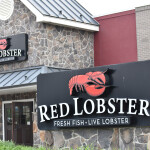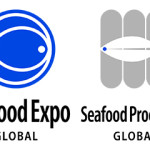The value of Vietnamese shrimp exports to the United Kingdom in May hit USD 9.4 million (EUR 8.5 million), double the value of the previous month, according to Vietnam’s General Department of Customs. In the first five months of this year, exports to the United Kingdom were worth USD 36.2 million (EUR 32.6 million), up 50.9 percent year-on-year.
Both black tiger (Penaeus monodon) and the more recently introduced (to Vietnam) white or white-legged (Penaeus vannamei) shrimp are exported.
Vietnam’s shrimp exports to the United Kingdom have been growing strongly despite the value of shipments to the EU registering a decline since early this year. U.K. imports had increased due to a larger supply of shrimp and a lower price for the seafood on the world market, said Nguyen Hoai Nam, general secretary of the Vietnamese Association of Seafood Exporters and Producers (VASEP).
The U.K.’s seafood consumption is on the rise due to health concerns, according to Nam. Consequently, farmed warmwater shrimp and other “new types of seafood” are on offer in retail stores, together with traditional species such as cod, salmon, tuna and coldwater shrimp (Pandalus borealis), he said.
Meanwhile, demand for Vietnamese shrimp fell in both the rest of the EU and the United States during the first six months of this year. This is unusual compared to the previous year, Nam said. “The importers may be waiting for a fall in prices due to the large supply of shrimp in the world market.”
VASEP expects shrimp exports to the United Kingdom and other EU countries to increase. However, it says the level of increase will be low due to the debt crisis in Greece. Overall Nam expects the value of Vietnamese shrimp exports this year to reach USD 3.9 billion (EUR 3.5 billion).
Vietnam’s valuable shrimp farming industry has been hit hard by outbreaks of Early Mortality Syndrome (EMS) or Acute Hepatopancreatic Necrosis Syndrome (AHPNS). The disease is caused by a strain of a bacterium commonly found in brackish coastal waters, Vibrio parahaemolyticus. Infected shrimp ponds experience extremely high levels of mortality early in their growing cycle — as high as 100 percent in some cases.
One way Vietnam is combating EMS is by introducing extensive farming, or what might be considered ranching, of shrimp. Shrimp larvae are released into the many canals of the Mekong delta, streams, or into the mangrove areas in the very south of the country, to feed themselves and be harvested after a certain period.
Flooded rice fields which are no longer stocked with rice seedlings are also used – the gain per hectare for shrimp is naturally far higher than for rice. The shrimp, both black tiger and vannamei, grow larger this way and are of very good quality, both in taste and texture.
Asked why the industry is not certifying this as “bio” or “eco” farming, an industry insider explained that there are too many farmers involved, including some small-scale farmers who fish the shrimp from non-enclosed waters so that it would be very difficult to provide the necessary paperwork and overhead control needed for certification.
Since they are not treated in any way and since they do not come into contact with other batches of shrimp, this keeps them free from diseases such as EMS. The shrimp are of very good quality when farmed like this.
This method is very similar to that used in Caumau province in the south of Vietnam where organic, or “bio” shrimp certified as such by Naturland of Germany are reared then processed for export mostly to the Swiss supermarket group Coop.
One leading Vietnamese shrimp exporter engaged in extensive farming is Cafatex Corporation. Cafatex sells large black tiger shrimp and vannamei to Japan, the EU, the United States and various other countries around the world. Said Nguyen Van Kich, chairman and general director: “If you set out shrimps free range – both vannamei and tigers – the shrimps generally grow bigger in the natural habitat than in intensive farming systems. This is good for the markets, for there is a high demand for big shrimps in the U.S. and parts of Europe.”






